27 May 2020. COVID-19's Impact on Ugandan Agribusiness
The Resilient Efficient Agribusiness Chains in Uganda (REACH-Uganda) project worked with partners of the Embassy of the Kingdom of Netherlands to survey many agricultural stakeholders throughout Uganda to understand how COVID-19 has affected their agribusinesses.
The Resilient Efficient Agribusiness Chains in Uganda (REACH-Uganda) project worked with partners of the Embassy of the Kingdom of Netherlands to survey many agricultural stakeholders throughout Uganda to understand how COVID-19 has affected their agribusinesses.
The findings of this survey were presented. At the time of analysis, 89 private sector businesses had participated in the survey. This webinar highlighted not just the challenges presented to firms from Uganda’s private sector, but it also gave voice and agency to those who have found ways to innovate in this challenging business environment.
* The video below starts at 1:21:15 with the statement of Joseph Nkuma of NUCAFE: "It is now more critical, more than ever before that institutions, organisations that bring together farmers has become more and more important. (..) There is a need in a systemic way of empowering farmers to be able to access funding opportunities."
Mitigating the impact of COVID-19:
- Businesses are contemplating to sustain their operations by reducing the operational costs – reviewing the staff salaries/wages, working from home, laying off some staff, and suspending some activities. Some have asked for permission from the district COVID-19 task force to allow them to continue operating.
- Businesses have strategized the marketing of products and service delivery to the clients – door-to-door and adopting digital platforms for marketing and service delivery of products to the clients.
- Engaging the financial institutions to restructure the loan payment plan. Holding on/seizing advancements to farmers before delivering the outputs are key immediate considerations with some of the businesses.
- Digitalizing the payment system with the clients through mobile money has been targeted to enhance transactions for businesses.
Policy recommendations for support
- Requests for financial aid for partners to sustain their operations in the short run and/or post COVID-19 operations is the major exclamation for most of the businesses.
- The need for support to invest in transport equipment to facilitate the procurement and delivery of the products
- Seeking for long term financing aid to invest in value addition and reviving the struggling businesses is wanting.
- Support to digitalizing businesses – marketing, payments, services deliveries
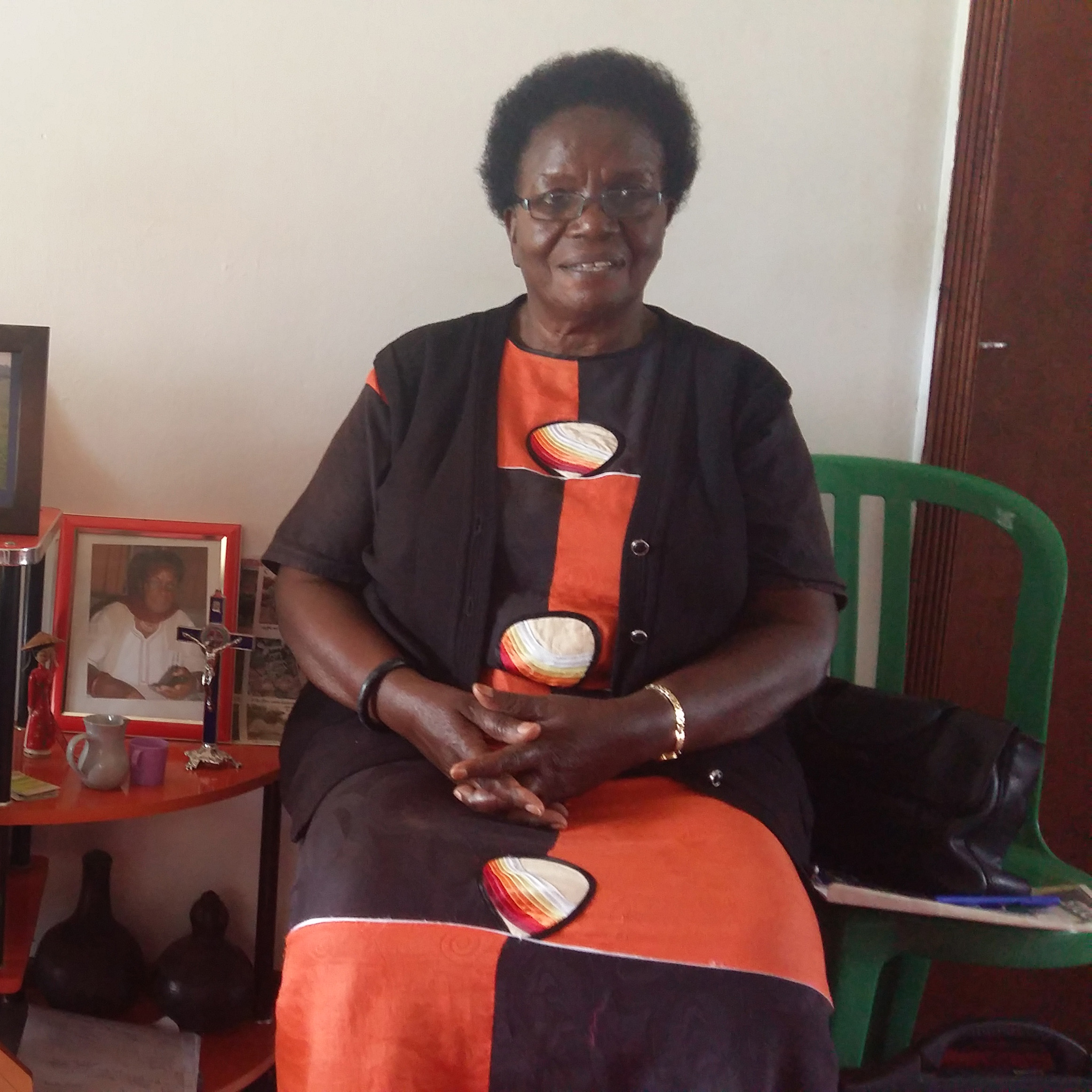 Philomena Nshangano is executive director of Rubyerwa Dairy Investments Ltd. (RDI) a family business she founded with her late husband. RDI is a medium-size (80-hectare) farm in Rwanyamahembe Sub County, Mbarara District. The business draws its name from its 3 sites: Rubingo, Byembogo & Rwanyamahembe that keep different stages of herd structures. On average, RDI produces 800 liters of milk daily from 45 cows. The business has received several awards from Local Government, DDA, the African Union, and livestock Shows, and is regarded as a model Commercial Dairy Training Farm. With support from SNV/TIDE, RDI has trained 750 dairy farmers & workers. RDI has designed Dairy Operational & Financial record books and hosts interns from all educational institutions and many farm visitors.
Philomena Nshangano is executive director of Rubyerwa Dairy Investments Ltd. (RDI) a family business she founded with her late husband. RDI is a medium-size (80-hectare) farm in Rwanyamahembe Sub County, Mbarara District. The business draws its name from its 3 sites: Rubingo, Byembogo & Rwanyamahembe that keep different stages of herd structures. On average, RDI produces 800 liters of milk daily from 45 cows. The business has received several awards from Local Government, DDA, the African Union, and livestock Shows, and is regarded as a model Commercial Dairy Training Farm. With support from SNV/TIDE, RDI has trained 750 dairy farmers & workers. RDI has designed Dairy Operational & Financial record books and hosts interns from all educational institutions and many farm visitors.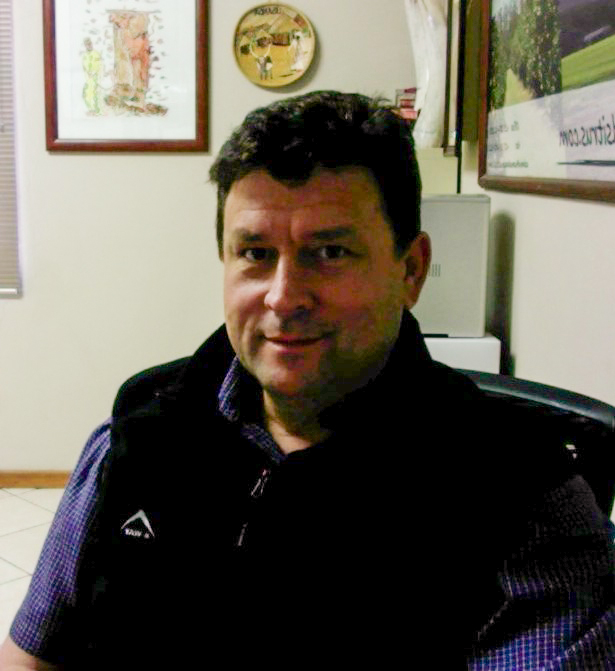 Tobias Basson is managing director of Highgrow Agri Ltd. trading as Namakwaland farms in Uganda. Namakwaland is a social impact driven agricultural company that wishes to better the lives of Ugandan farmers through modern primary agriculture and value addition. Namakwaland’s main focus area in Uganda is Irish potato farming, working in ware potato production for retailers, processors, restaurants and local market. Namakwaland also supplies seed for the industry. Namakwaland also engages in exporting crops such as peanuts, sweet potato, and hot pepper. This is also one as part of crop rotation system. Maize for seed production is also planted. Namakwaland supplies jobs for up to 250 people, mostly women and youth and works with IFDC’s REACH-Uganda project, which connects the business with a network of over 5,000 Irish potato farmers.
Tobias Basson is managing director of Highgrow Agri Ltd. trading as Namakwaland farms in Uganda. Namakwaland is a social impact driven agricultural company that wishes to better the lives of Ugandan farmers through modern primary agriculture and value addition. Namakwaland’s main focus area in Uganda is Irish potato farming, working in ware potato production for retailers, processors, restaurants and local market. Namakwaland also supplies seed for the industry. Namakwaland also engages in exporting crops such as peanuts, sweet potato, and hot pepper. This is also one as part of crop rotation system. Maize for seed production is also planted. Namakwaland supplies jobs for up to 250 people, mostly women and youth and works with IFDC’s REACH-Uganda project, which connects the business with a network of over 5,000 Irish potato farmers. 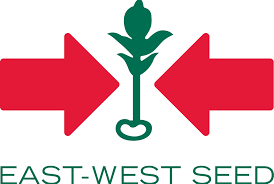 Annet Kizza is the knowledge transfer country manager for East-West Seed. Kizza has managed several projects in the areas of livelihood WASH and governance; as a grant special specialist, she possesses wide knowledge on project management and resource mobilization. She is currently managing several country programs of East-West Seed aimed at promoting vegetable growing in Uganda. Kizza has worked with and managed for several donors including USAID, EU, and DFID. She has also worked as a consultant in organizational development for both private sector and government agencies.
Annet Kizza is the knowledge transfer country manager for East-West Seed. Kizza has managed several projects in the areas of livelihood WASH and governance; as a grant special specialist, she possesses wide knowledge on project management and resource mobilization. She is currently managing several country programs of East-West Seed aimed at promoting vegetable growing in Uganda. Kizza has worked with and managed for several donors including USAID, EU, and DFID. She has also worked as a consultant in organizational development for both private sector and government agencies.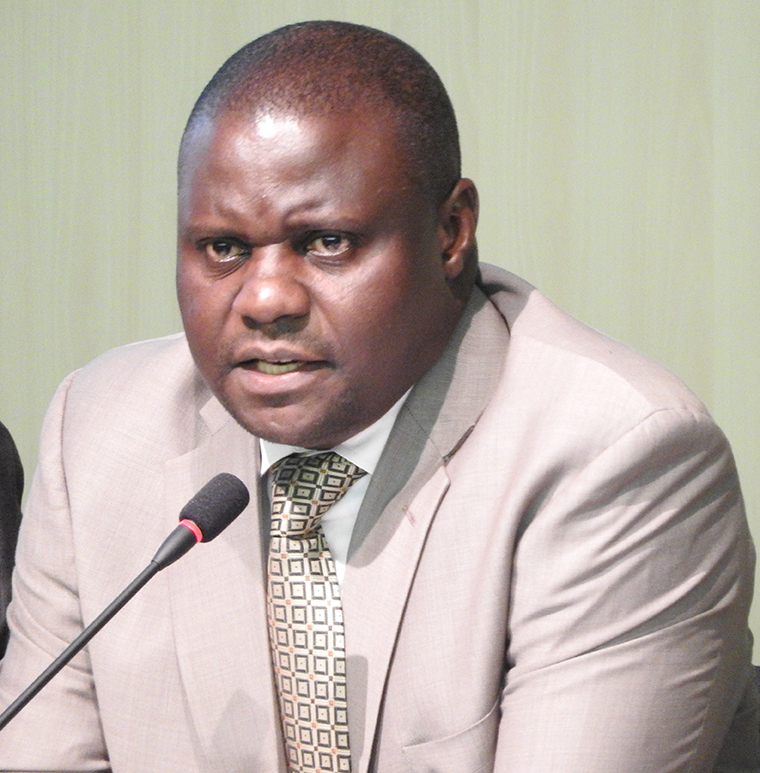 Joseph Nkuma has spearheaded empowerment of over 1.5 million Ugandan smallholder coffee farmers using his innovation of the farmer ownership model that has increased farming household income by 250%. Nkuma has founded and established two national social enterprises: NUCAFE as Uganda’s coffee largest entrepreneurial employer and CURAD as Uganda’s largest agribusiness incubator. Nkuma successfully championed and influenced Government of Uganda to formulate the first ever Uganda National Coffee Policy in 2013, which supports farmers to own and add value to their coffee. Joseph has won NUCAFE many awards including the National Investor of the Year Award 2016 and Best Africa Farmer Organization of the year 2016 in income diversity.
Joseph Nkuma has spearheaded empowerment of over 1.5 million Ugandan smallholder coffee farmers using his innovation of the farmer ownership model that has increased farming household income by 250%. Nkuma has founded and established two national social enterprises: NUCAFE as Uganda’s coffee largest entrepreneurial employer and CURAD as Uganda’s largest agribusiness incubator. Nkuma successfully championed and influenced Government of Uganda to formulate the first ever Uganda National Coffee Policy in 2013, which supports farmers to own and add value to their coffee. Joseph has won NUCAFE many awards including the National Investor of the Year Award 2016 and Best Africa Farmer Organization of the year 2016 in income diversity. John Tusasirwe is the current CEO of Transformation for Rural Development (TRAFORD) Limited. TRAFORD mainly deals in climate smart agriculture training, agro-input advisory and procurement, and produce marketing/trading in cereals, pulses, and oil crops. Tusasirwe has been a team leader/CEO at TRAFORD since 2016. He is currently giving both financial, production, and operation oversight to over 10 permanent staff coordinating TRAFORD projects supporting over 6000 youth and women in both Amuria and Dokolo districts; the two projects are co-funded by SNV and Heifer international.
John Tusasirwe is the current CEO of Transformation for Rural Development (TRAFORD) Limited. TRAFORD mainly deals in climate smart agriculture training, agro-input advisory and procurement, and produce marketing/trading in cereals, pulses, and oil crops. Tusasirwe has been a team leader/CEO at TRAFORD since 2016. He is currently giving both financial, production, and operation oversight to over 10 permanent staff coordinating TRAFORD projects supporting over 6000 youth and women in both Amuria and Dokolo districts; the two projects are co-funded by SNV and Heifer international. Dr. Okoth Ochola Godfrey is a veterinary surgeon and CEO and founder of Asiima Agriconcern Ltd (2004), a family business run together with his wife Eva Ochola – marketer and co-director. Ochola specializes in the poultry value chain livestock subsector and has worked with the government for one year and with the private sector since 1990. Asiima operates in six districts in Uganda, employing more than 90 workers and supporting more than 3000 farmers indirectly. Asiima has assisted in training more than 2000 farmers, farmer groups, students, and interns with the support from these partners: AVSI/SKY, DANIDA, and Mukerere University. Asiima supports farmers through extension services from its veterinary pharmacy outlet in Kampala which doubles as a marketing hub for its products and services as well as a booking office for the DOCs.
Dr. Okoth Ochola Godfrey is a veterinary surgeon and CEO and founder of Asiima Agriconcern Ltd (2004), a family business run together with his wife Eva Ochola – marketer and co-director. Ochola specializes in the poultry value chain livestock subsector and has worked with the government for one year and with the private sector since 1990. Asiima operates in six districts in Uganda, employing more than 90 workers and supporting more than 3000 farmers indirectly. Asiima has assisted in training more than 2000 farmers, farmer groups, students, and interns with the support from these partners: AVSI/SKY, DANIDA, and Mukerere University. Asiima supports farmers through extension services from its veterinary pharmacy outlet in Kampala which doubles as a marketing hub for its products and services as well as a booking office for the DOCs. Elijah Mwashayenyi is the Head of East-West Seed Knowledge Transfer in Africa, with the responsibility for resource mobilisation, partnership building, and management support to country teams. Mwashayenyi has 30 years of experience in the horticulture and development sectors. East-West Seed’s current work in Africa is focused on Tanzania, Uganda, and Nigeria but has prospects of expanding to other countries in future.
Elijah Mwashayenyi is the Head of East-West Seed Knowledge Transfer in Africa, with the responsibility for resource mobilisation, partnership building, and management support to country teams. Mwashayenyi has 30 years of experience in the horticulture and development sectors. East-West Seed’s current work in Africa is focused on Tanzania, Uganda, and Nigeria but has prospects of expanding to other countries in future. Kenneth Kagame is a retired medical professor of medicine. Since his retirement in 2011, his focus has been on dairy farming. Kagame’s 60-hectare farm is peri-urban, 12 km from Mbarara City centre. Ten hectares of the farm are devoted to bananas and fodder. Kagame keeps Friesian crosses, about 3F grade. Kagame is involved with a dairy cooperative Society, BUKAKA, under the umbrella UCCCU, in which he serves as the chairman. The cooperative owns a 3000-liter cooler and can collect and market milk for about 70 members.
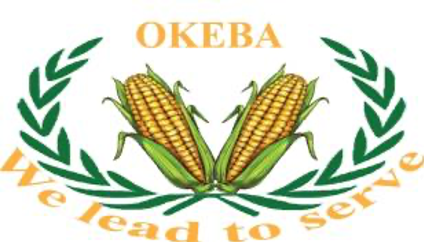 Owoyesigyire Kenneth is the managing director of OKEBA Uganda, Ltd. He has over 8 years of experience in project management implementation of multi-donor-funded projects, and value addition processing and marketing. Okeba’s core business falls under three thematic areas (i) innovations for livelihoods, (ii) financing and distribution of agricultural inputs, and (iii) grain bulking, marketing and Logistics and transport. In partnership with SNV, OKEBA is implementing a Climate Resilient Agribusiness for Tomorrow (CRAFT) project in the four districts of Mubende, Kyejonjo, Kakumiro, and Kyegegwa. The project is empowering 8000 farmers to increase their incomes through increased production of soybean by use of Climate Smart Agricultural Technologies.
Owoyesigyire Kenneth is the managing director of OKEBA Uganda, Ltd. He has over 8 years of experience in project management implementation of multi-donor-funded projects, and value addition processing and marketing. Okeba’s core business falls under three thematic areas (i) innovations for livelihoods, (ii) financing and distribution of agricultural inputs, and (iii) grain bulking, marketing and Logistics and transport. In partnership with SNV, OKEBA is implementing a Climate Resilient Agribusiness for Tomorrow (CRAFT) project in the four districts of Mubende, Kyejonjo, Kakumiro, and Kyegegwa. The project is empowering 8000 farmers to increase their incomes through increased production of soybean by use of Climate Smart Agricultural Technologies.The webinar (Recording forthcoming) answered the following questions and more:
- What are the current critical challenges faced by firms working in Uganda’s agriculture sector?
- How have Ugandan firms led in business innovation?
- What are the key gaps remaining that the agriculture business sector still needs help in bridging?

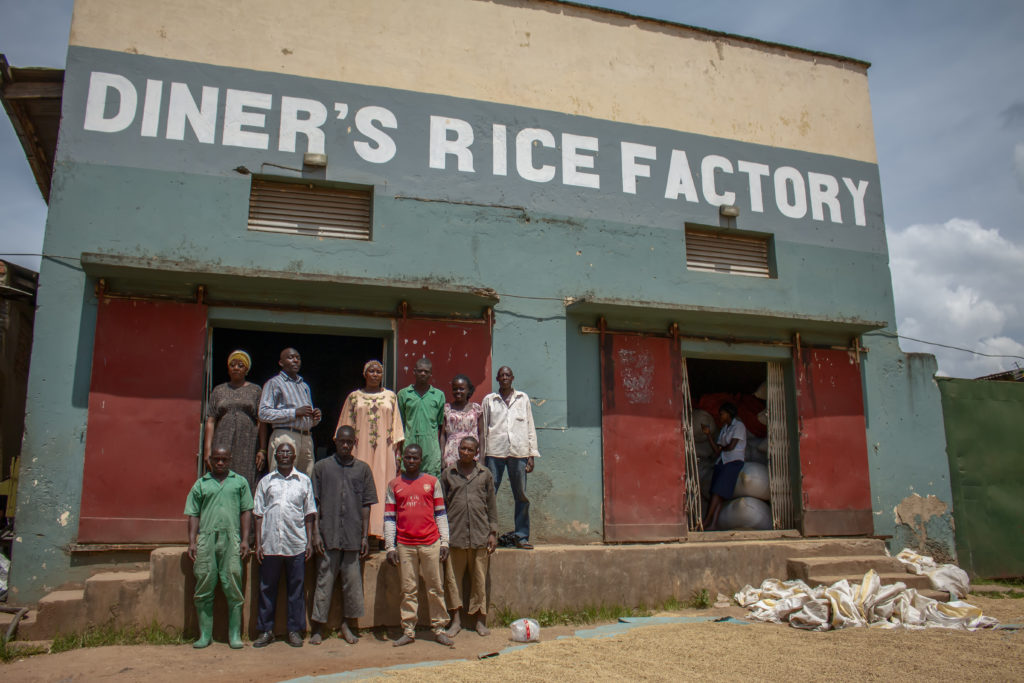
No comments:
Post a Comment